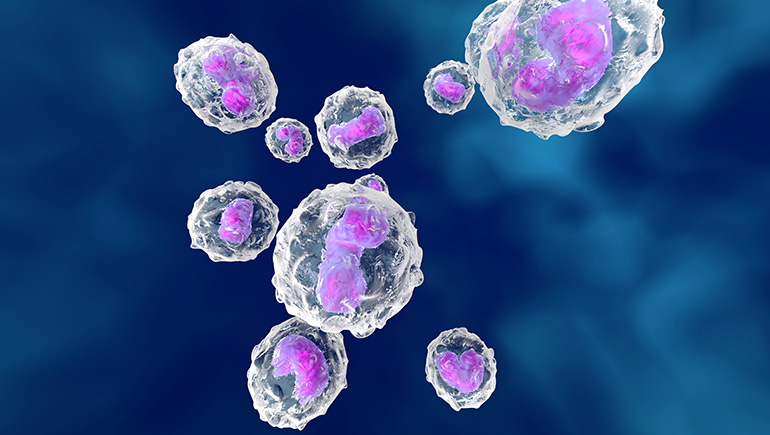
The immune system is the front line of defense against viruses. However, several viruses like EBV can infect and replicate within a variety of cells, and some even “go quiet” to latently persist within certain infection-fighting cells. When viruses do replicate, they sometimes integrate their genetic material, made of DNA or RNA, into that of host cells. The viral genetic material can then control the cell’s growth cycle. For viruses with known cancer associations, this reprogramming of a host cell affects its proliferation and ability to be recognized by the body’s defensive immune system. These modified cells also can accumulate genetic mutations as they proliferate and eventually could develop into cancer.
Activation of the immune system with therapies has a proven track record in many solid tumor cancers. Enhancing immune response also may be used to treat patients with chronic viral infections. Therefore, we at Bristol Myers Squibb think virally associated cancers might also be targeted via the immune system. We are exploring if enhancing the immune system’s recognition of viruses and cancer might result in a double hit against virally associated cancers.
At Bristol Myers Squibb, our clinical trials include patients with cancers associated with HPV, EBV, and also a rare type of skin cancer called Merkel Cell carcinoma that is associated with polyomavirus. By learning more about the science of virally associated cancers and carefully testing medicines in studies of patients with such illnesses, we hope to make advances in cancer treatment to address the unmet medical needs of our patients.
